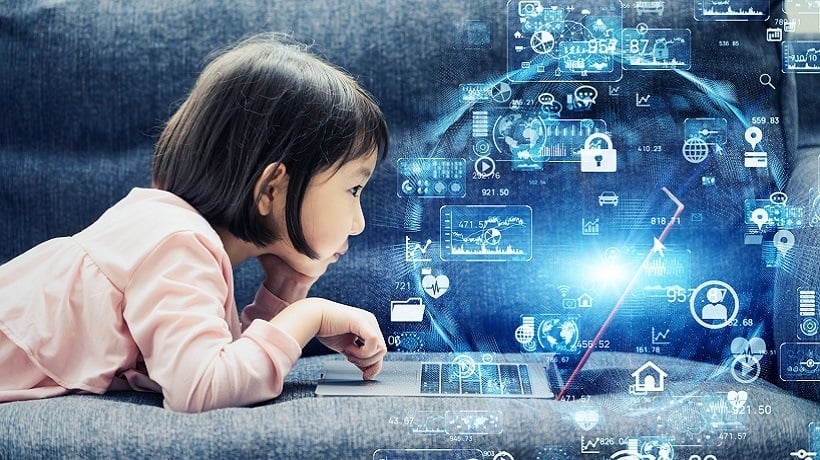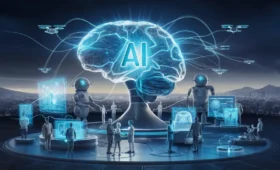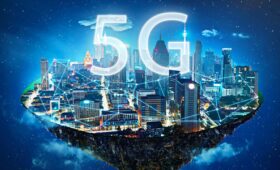As we move further into the 21st century, the pace of technological advancement is accelerating at an unprecedented rate. In 2025, we are poised to witness revolutionary changes across multiple sectors, driven by innovations that will shape the way we live, work, and interact with the world. From artificial intelligence (AI) to sustainable energy solutions, the next wave of tech innovations promises to bring transformative changes. In this article, we’ll explore the top 5 tech innovations to watch in 2025 and how they will change the landscape of industries worldwide.
1. AI-Powered Automation: Revolutionizing Industries
Artificial Intelligence has already made its mark in industries like finance, healthcare, and transportation. But in 2025, we will see AI-powered automation reach new heights. Automation is not only improving operational efficiency but also enhancing creativity, decision-making, and problem-solving. AI-driven systems will continue to eliminate repetitive tasks, allowing human workers to focus on more strategic and creative functions.
In manufacturing, we can expect the rise of smart factories, where robots and AI systems work together seamlessly. These factories will rely on AI for predictive maintenance, quality control, and real-time data analytics, drastically reducing downtime and improving overall efficiency. Similarly, in healthcare, AI-powered diagnostic tools will assist doctors in detecting diseases earlier and more accurately, ultimately saving lives.
Moreover, automation in industries such as agriculture, logistics, and retail will further optimize supply chains and production processes, cutting costs and improving customer satisfaction.
2. Quantum Computing Breakthroughs: A New Era of Data Processing
Quantum computing is one of the most exciting areas of technological innovation. While quantum computers are still in their infancy, 2025 will likely be a milestone year for the technology. Unlike classical computers, which process data using binary bits (0s and 1s), quantum computers use quantum bits or qubits. This enables them to perform complex calculations exponentially faster than traditional machines.
In 2025, we can expect breakthroughs in quantum computing that will revolutionize industries such as cybersecurity, drug discovery, finance, and material science. For instance, quantum algorithms could be used to design new materials with specific properties, enabling the development of lighter, stronger, and more efficient products. In healthcare, quantum computing could speed up the process of drug discovery by simulating molecular interactions at an unprecedented level of detail, significantly shortening the time required to bring new treatments to market.
The field of cybersecurity will also benefit from quantum computing. With its ability to break traditional encryption algorithms, quantum computing will require the development of new, more secure encryption methods to safeguard sensitive data. This transition to quantum-safe encryption will become crucial for organizations to stay ahead of evolving cyber threats.
3. 5G Connectivity Expansion: Transforming Communication and Internet Experience
5G technology is expected to be fully implemented by 2025, bringing unprecedented improvements to mobile networks. With speeds up to 100 times faster than 4G, 5G will enable new applications in areas like virtual reality (VR), autonomous vehicles, and smart cities.
The higher bandwidth and lower latency of 5G will allow for seamless real-time communication between devices, creating a truly interconnected world. For example, 5G will enhance remote work experiences by enabling crystal-clear video conferencing and real-time collaboration, no matter where employees are located. It will also enable the development of fully autonomous vehicles, as 5G’s low latency allows for instantaneous communication between vehicles, traffic infrastructure, and other connected devices.
In addition, 5G will accelerate the growth of the Internet of Things (IoT), enabling smarter homes, cities, and industries. From smart appliances that communicate with each other to real-time traffic management systems, 5G will lay the foundation for a more efficient and connected future.
4. Augmented Reality (AR) in Everyday Life: Beyond Gaming
While augmented reality (AR) has been gaining traction in the gaming world, its potential extends far beyond entertainment. By 2025, AR will be a key component in various industries, revolutionizing the way we work, shop, learn, and even receive medical care.
In retail, AR will provide customers with the ability to virtually try on clothes, view furniture in their homes, or explore product features in greater detail before making a purchase. This will enhance the shopping experience and increase conversion rates for retailers. In the education sector, AR will bring textbooks to life by overlaying interactive 3D models and simulations, helping students better understand complex subjects like anatomy, chemistry, and engineering.
In healthcare, AR will be used for surgical planning and guidance, allowing surgeons to view 3D models of a patient’s body during procedures. This technology will reduce errors and improve patient outcomes. Additionally, AR-based diagnostic tools will help doctors visualize and analyze patient data more effectively, leading to more accurate diagnoses.
The expansion of AR into everyday life will open up countless new opportunities for innovation, improving both personal and professional experiences.
5. Sustainable Tech Solutions: Driving the Green Revolution
As climate change continues to be one of the most pressing global challenges, sustainable technology solutions are gaining momentum. By 2025, we can expect a significant rise in eco-friendly innovations that focus on reducing carbon footprints and promoting environmental sustainability.
Renewable energy technologies, such as solar, wind, and geothermal, will continue to advance, making clean energy more affordable and accessible. Innovations in energy storage, such as next-gen batteries and hydrogen fuel cells, will solve some of the most significant challenges associated with renewable energy, such as intermittency and storage capacity.
Electric vehicles (EVs) are also expected to dominate the transportation sector by 2025, with advancements in battery technology leading to longer ranges, faster charging times, and more affordable models. In addition to EVs, we will see a rise in sustainable transportation infrastructure, including charging stations and solar-powered transportation networks.
Another promising area is the development of sustainable agriculture technologies. From vertical farming to precision agriculture, these innovations will help reduce the environmental impact of food production while increasing efficiency and food security.
These sustainable solutions will not only help mitigate climate change but also drive economic growth in green industries, creating new job opportunities and fostering a more eco-conscious society.
Conclusion: Embracing a Tech-Driven Future
The innovations we are set to witness in 2025 will revolutionize every aspect of our lives. From AI-powered automation transforming industries to the expansion of 5G connectivity bringing seamless communication, these technologies will redefine the way we interact with the world around us. Furthermore, with the rise of augmented reality and sustainable technologies, we will experience a future that is both smarter and more sustainable.
As we move toward a more interconnected, automated, and environmentally responsible world, it is essential for businesses, governments, and individuals to embrace these technologies and adapt to the rapid changes ahead. The future of technology is here, and it promises to be an exciting and transformative journey.




